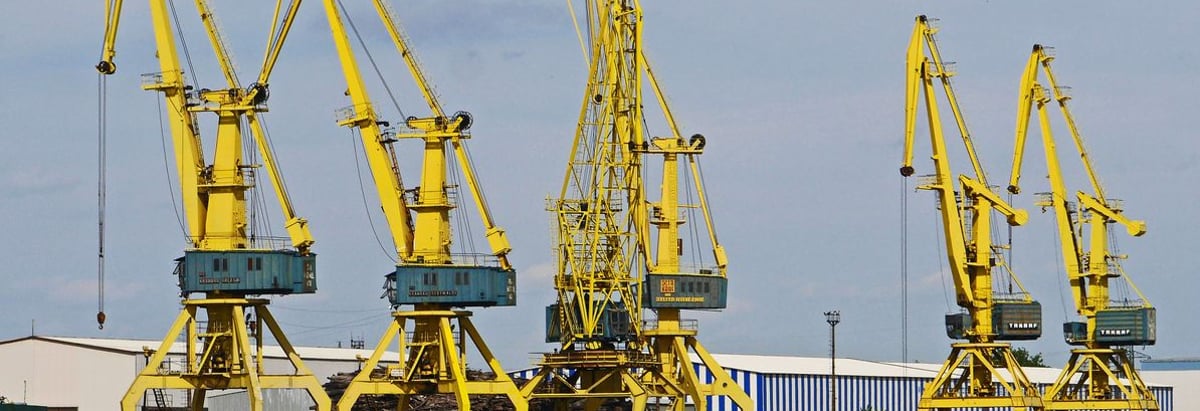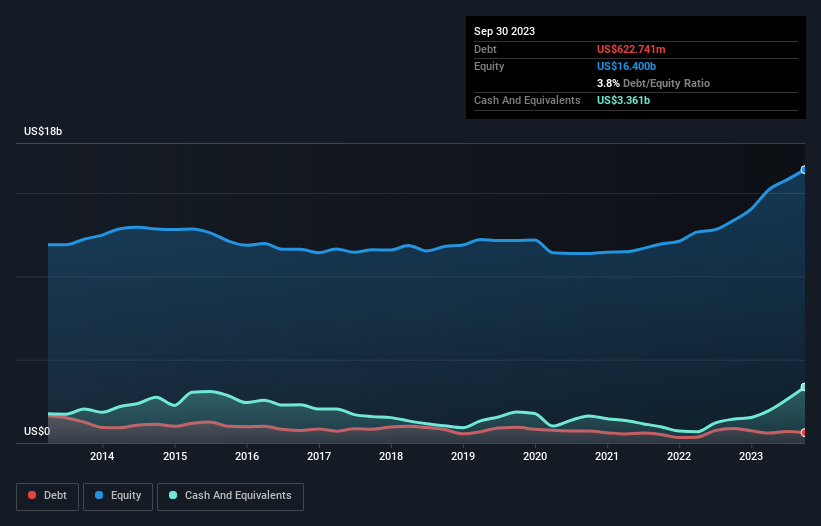
The external fund manager backed by Berkshire Hathaway's Charlie Munger, Li Lu, makes no bones about it when he says 'The biggest investment risk is not the volatility of prices, but whether you will suffer a permanent loss of capital.' So it might be obvious that you need to consider debt, when you think about how risky any given stock is, because too much debt can sink a company. As with many other companies Tenaris S.A. (BIT:TEN) makes use of debt. But should shareholders be worried about its use of debt?
What Risk Does Debt Bring?
Debt assists a business until the business has trouble paying it off, either with new capital or with free cash flow. Ultimately, if the company can't fulfill its legal obligations to repay debt, shareholders could walk away with nothing. However, a more frequent (but still costly) occurrence is where a company must issue shares at bargain-basement prices, permanently diluting shareholders, just to shore up its balance sheet. Of course, the upside of debt is that it often represents cheap capital, especially when it replaces dilution in a company with the ability to reinvest at high rates of return. The first thing to do when considering how much debt a business uses is to look at its cash and debt together.
View our latest analysis for Tenaris
What Is Tenaris's Net Debt?
As you can see below, Tenaris had US$622.7m of debt at September 2023, down from US$875.9m a year prior. But on the other hand it also has US$3.36b in cash, leading to a US$2.74b net cash position.

How Healthy Is Tenaris' Balance Sheet?
The latest balance sheet data shows that Tenaris had liabilities of US$2.53b due within a year, and liabilities of US$910.5m falling due after that. Offsetting these obligations, it had cash of US$3.36b as well as receivables valued at US$2.70b due within 12 months. So it can boast US$2.62b more liquid assets than total liabilities.
This short term liquidity is a sign that Tenaris could probably pay off its debt with ease, as its balance sheet is far from stretched. Succinctly put, Tenaris boasts net cash, so it's fair to say it does not have a heavy debt load!
Better yet, Tenaris grew its EBIT by 110% last year, which is an impressive improvement. That boost will make it even easier to pay down debt going forward. When analysing debt levels, the balance sheet is the obvious place to start. But it is future earnings, more than anything, that will determine Tenaris's ability to maintain a healthy balance sheet going forward. So if you're focused on the future you can check out this free report showing analyst profit forecasts.
Finally, a business needs free cash flow to pay off debt; accounting profits just don't cut it. Tenaris may have net cash on the balance sheet, but it is still interesting to look at how well the business converts its earnings before interest and tax (EBIT) to free cash flow, because that will influence both its need for, and its capacity to manage debt. During the last three years, Tenaris produced sturdy free cash flow equating to 53% of its EBIT, about what we'd expect. This cold hard cash means it can reduce its debt when it wants to.
Summing Up
While we empathize with investors who find debt concerning, you should keep in mind that Tenaris has net cash of US$2.74b, as well as more liquid assets than liabilities. And it impressed us with its EBIT growth of 110% over the last year. So is Tenaris's debt a risk? It doesn't seem so to us. The balance sheet is clearly the area to focus on when you are analysing debt. However, not all investment risk resides within the balance sheet - far from it. Be aware that Tenaris is showing 2 warning signs in our investment analysis , and 1 of those is potentially serious...
When all is said and done, sometimes its easier to focus on companies that don't even need debt. Readers can access a list of growth stocks with zero net debt 100% free, right now.
Valuation is complex, but we're here to simplify it.
Discover if Tenaris might be undervalued or overvalued with our detailed analysis, featuring fair value estimates, potential risks, dividends, insider trades, and its financial condition.
Access Free AnalysisHave feedback on this article? Concerned about the content? Get in touch with us directly. Alternatively, email editorial-team (at) simplywallst.com.
This article by Simply Wall St is general in nature. We provide commentary based on historical data and analyst forecasts only using an unbiased methodology and our articles are not intended to be financial advice. It does not constitute a recommendation to buy or sell any stock, and does not take account of your objectives, or your financial situation. We aim to bring you long-term focused analysis driven by fundamental data. Note that our analysis may not factor in the latest price-sensitive company announcements or qualitative material. Simply Wall St has no position in any stocks mentioned.
About BIT:TEN
Tenaris
Manufactures and distributes steel pipes for the energy industry and other industrial applications in North America, South America, Europe, the Middle East and Africa, and the Asia Pacific.
Flawless balance sheet, good value and pays a dividend.

